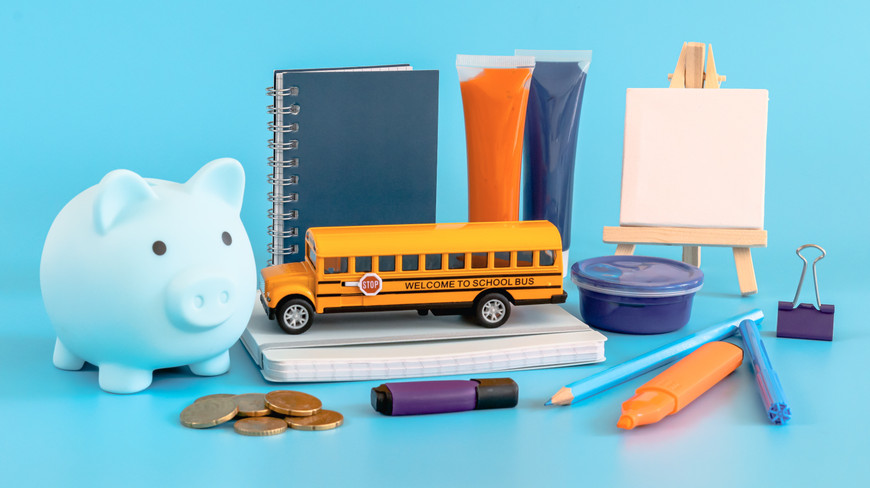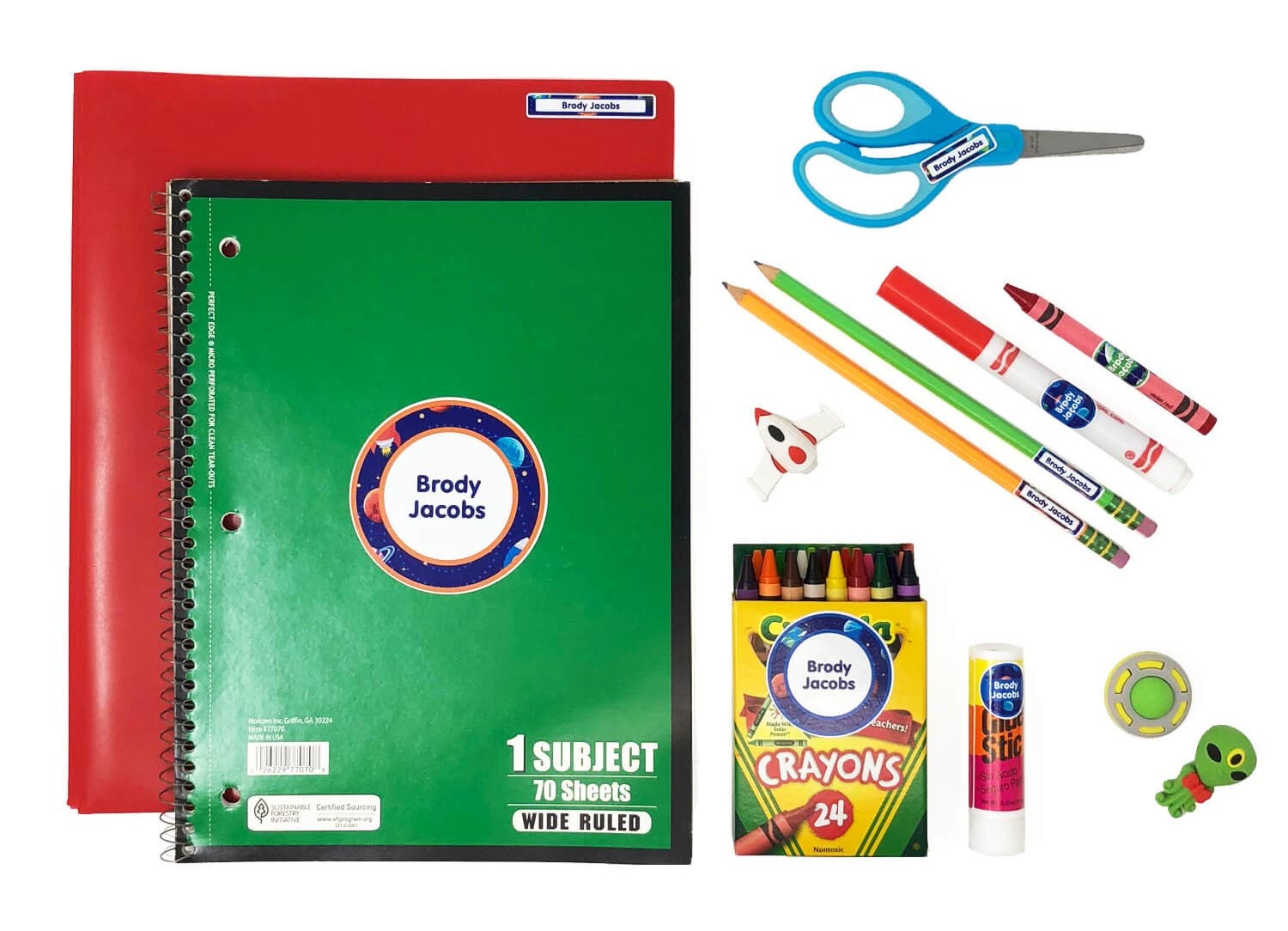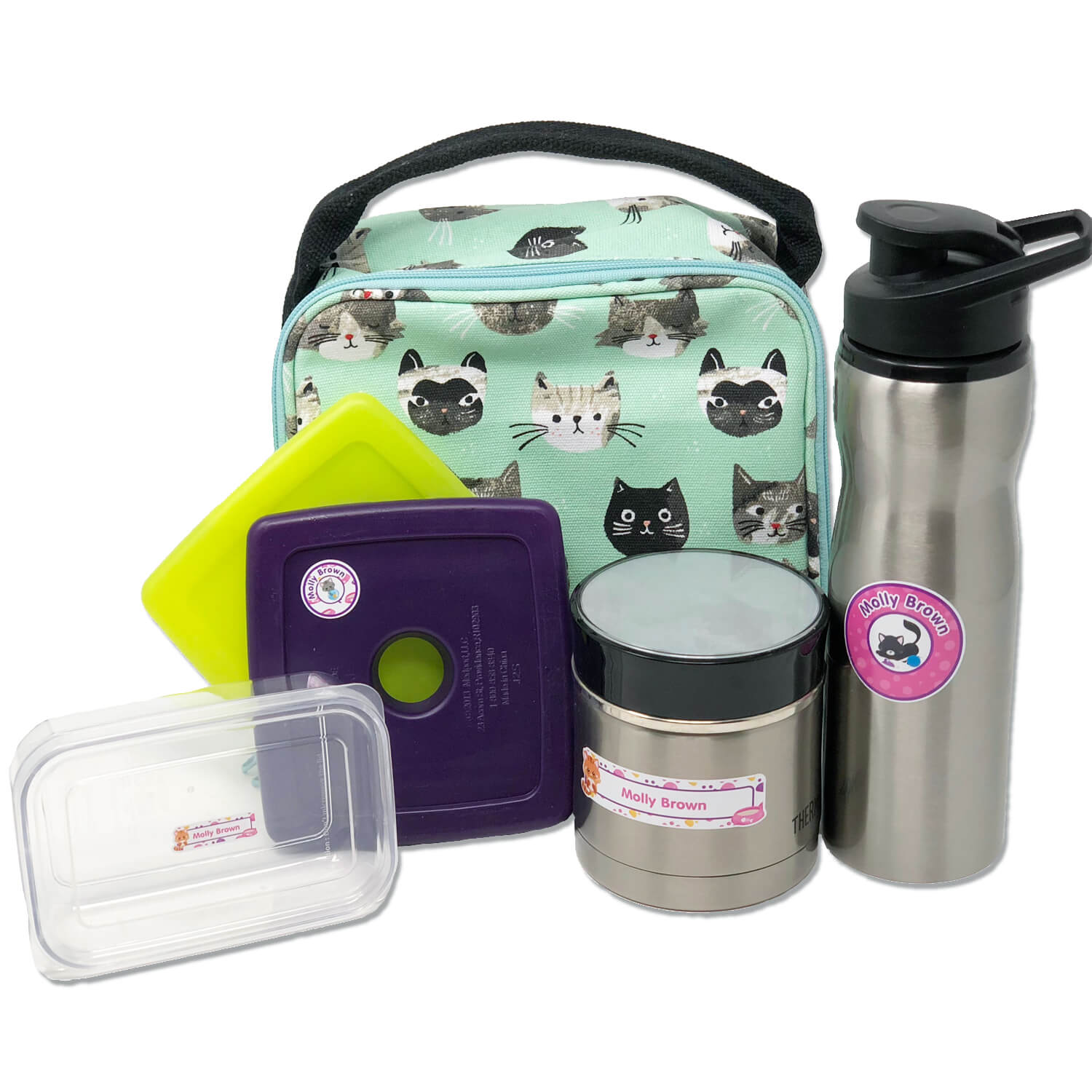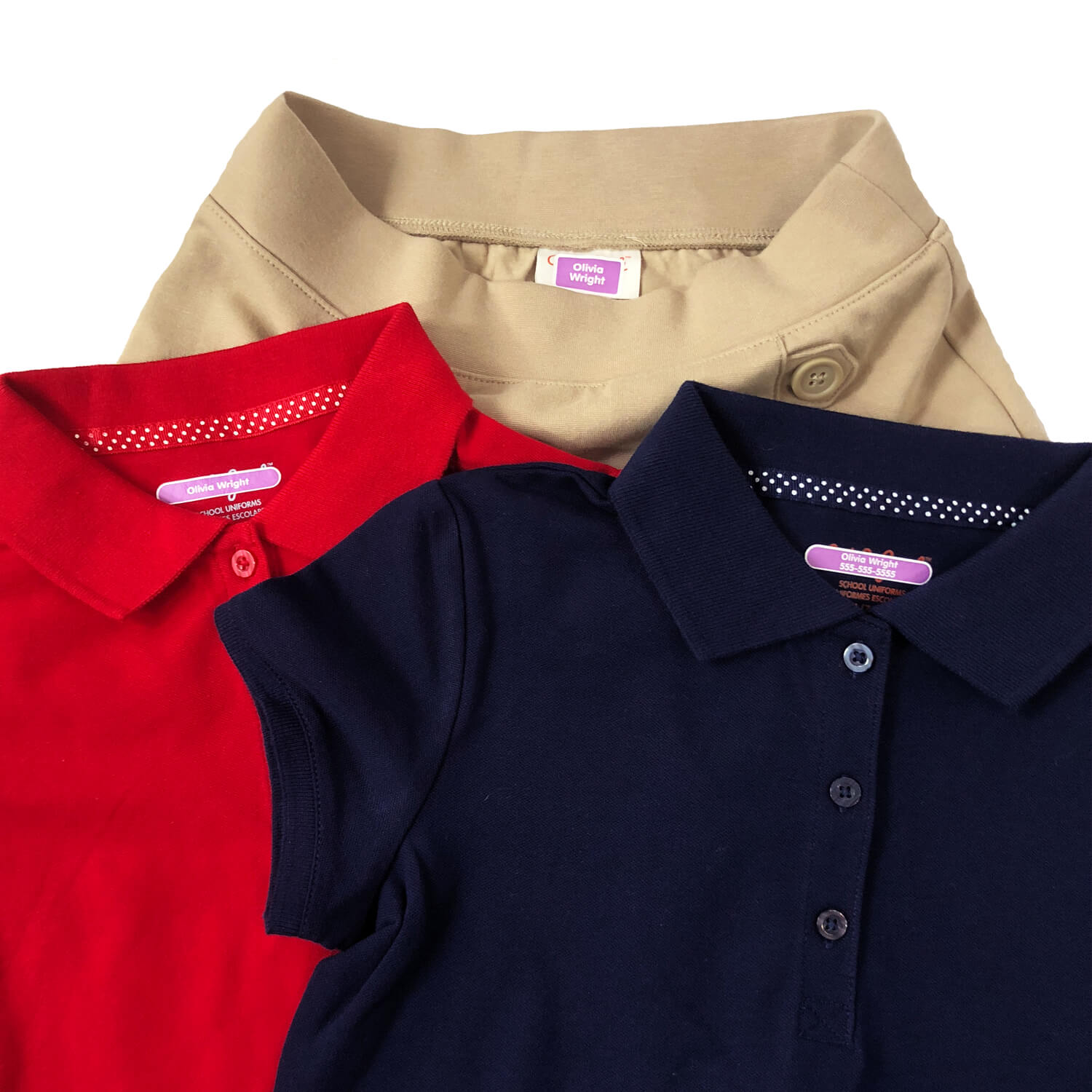As a mom of three boys—I've made my fair share of back-to-school shopping mistakes over the years. When I started Sticky Monkey Labels in 2011, right after my second son was born, I was navigating the overwhelming world of school supply lists while managing our family's unique needs.
The numbers are staggering: according to the 2024 National Retail Federation, families spend an average of $875 on back-to-school supplies. Even more concerning, 44% of parents plan to go into debt for supplies—that's up 10 percentage points from last year. And 54% of families are sacrificing necessities like groceries to afford school shopping.
Here's the truth: most of these financial struggles are avoidable. The mistakes I'm about to share aren't just about money—they're about the emotional toll of time wasted, stress accumulated, and that gut-wrenching guilt when you realize you've spent hundreds more than necessary.
Mistake #1: Not Taking Inventory Before Shopping
The Cost: Duplicate purchases that can add $50-100 to your bill
I learned this lesson the hard way during my first son's kindergarten year. I rushed to the store with his supply list, buying everything from scratch. When I got home, I discovered we already had half the items buried in our junk drawer and closets.
The Smart Strategy:
- Gather supplies from around your house first
- Check backpacks, desks, and storage areas
- Make a "have" and "need" list before stepping foot in a store
- Take photos of what you find so you remember while shopping
Mistake #2: Shopping Without Understanding What Teachers Actually Need
The Cost: Wasted money on items that won't be used, plus additional shopping trips
Here's what many parents don't realize: there's often a disconnect between the official school supply list and what individual teachers actually prefer. Some teachers pool supplies for communal use, while others want everything individually labeled and kept separate.
The Research Reality:
- 67% of teachers report that parents buy items that end up unused
- Teachers often have specific brand preferences for good reasons (cheaper alternatives frequently break or don't work as intended)
- Many schools now use communal supply systems, making some personal labeling unnecessary
The Smart Strategy:
- Email your child's teacher before shopping (if known)
- Ask veteran parents about specific teacher preferences
- Attend back-to-school nights before major shopping
- Start with basics and add items as needed
Mistake #3: Falling for "Back-to-School" Marketing Without Price Checking
The Cost: Paying 20-40% more than regular prices
Retailers know parents are desperate in July and August. That "Back-to-School Sale" sign doesn't always mean savings—sometimes it means inflated prices with fake discounts.
The Smart Strategy:
- Check regular prices on items throughout the year
- Use price comparison apps while shopping
- Stock up on basics during genuine sales (January clearance, summer sales)
- Buy non-seasonal items year-round when prices drop
Money-Saving Reality: Basic school supplies like pencils, notebooks, and folders are often cheapest in January and May, not during back-to-school season.
Mistake #4: Not Labeling Supplies (And Losing Everything)
The Cost: Replacing lost items multiple times throughout the year—easily $200-400 per child
This is where my business expertise really shines through personal experience. With three boys in different grades, I've seen firsthand how quickly unlabeled supplies disappear into the school void.
The Shocking Truth About Lost Supplies:
- Elementary students lose an average of 3-4 items per month
- 73% of teachers report finding unlabeled items they can't return
- Parents spend an estimated $150-300 per child replacing lost supplies throughout the year
Why Labeling Teaches Lifelong Responsibility:
When children see their name on their belongings, something powerful happens. They develop ownership, accountability, and organizational skills that extend far beyond school supplies. My adopted son with special needs has flourished with this system—the visual reminder of his name helps him track and care for his belongings independently.
The Smart Labeling Strategy:
- Waterproof labels for everything: Lunch boxes, water bottles, folders, pencil cases
- Color-coding system: Assign each child a color for instant identification
- Clothing labels: Essential for playground items, jackets, and gym clothes that end up in lost and found
- Reusable lunch containers: Dishwasher-safe labels + reusable containers = environmental and cost savings
Product Spotlight: School Label Packs
Our waterproof school label packs include 138 labels that last the entire school year and beyond. Parents save money by not replacing lost items, and children learn responsibility by caring for labeled belongings. The labels are dishwasher-safe, microwave-safe, and playground-proof.
"I bought one pack of labels at the beginning of kindergarten, and we're still using them in third grade. My daughter has never lost a lunch box or water bottle since we started labeling everything." - Jennifer K., mom of two
Mistake #5: Buying Everything at Once Instead of Strategic Shopping
The Cost: Missing better deals and overbuying items your child may not need
The Smart Strategy:
- Buy basics first (pencils, notebooks, folders)
- Wait on specialty items until you know teacher preferences
- Shop sales throughout the year for next year's supplies
- Consider bulk buying for better prices
Bulk Buying Benefits:
When you buy lunch foods in bulk instead of individual containers, you save money AND reduce waste. Pair this with labeled reusable containers, and you've created an efficient, cost-effective system.
Mistake #6: Ignoring the Home Organization Factor
The Cost: Morning chaos, forgotten assignments, and repeated purchases
The Hidden Benefit of Labeling:
Labeled school clothes and uniforms make morning routines smoother. When everything has a designated, labeled place, children can dress independently and parents avoid the frantic search for missing uniform pieces.
The Smart Strategy:
- Create labeled storage systems at home
- Designate specific spots for school clothes, supplies, and backpacks
- Use the same labeling system at home and school for consistency
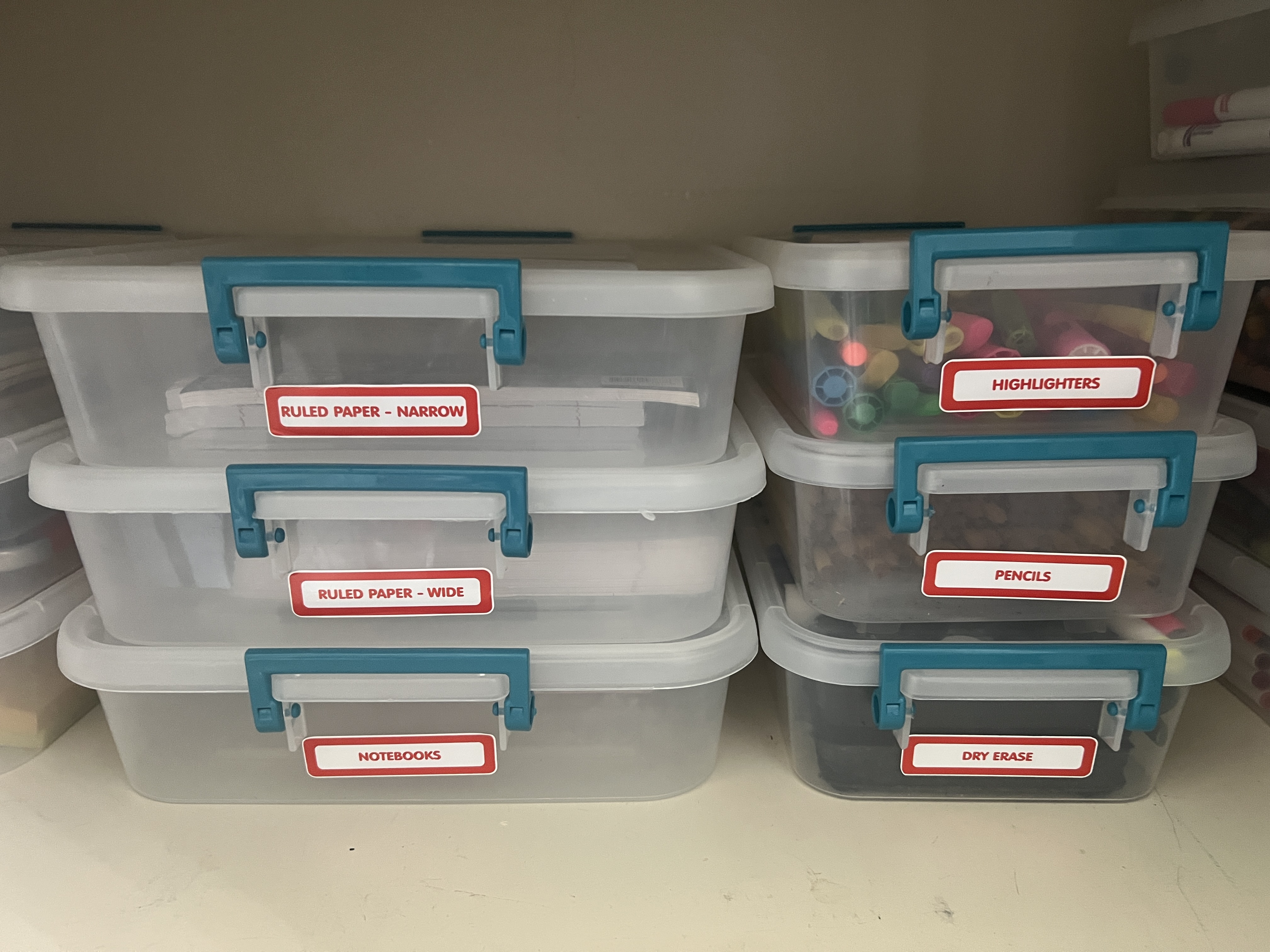
Mistake #7: Not Planning for the Playground and Lost & Found
The Cost: Replacing jackets, sweatshirts, and outdoor gear multiple times per year
The Reality Check:
Elementary schools report that 60% of lost and found items are clothing—jackets, sweatshirts, hats, and gym shoes. Most of these items are never claimed because they're not labeled.
The Smart Strategy:
- Label ALL clothing that leaves the house
- Use clothing labels for clothing that gets washed frequently
- Consider stick-on clothes labels for shoes, backpacks, and lunch gear
The Real Investment: Teaching Ownership and Responsibility
Beyond the money saved, labeling teaches children a lifelong lesson about ownership and responsibility. When my sons see their names on their belongings, they naturally take better care of them. This lesson extends to homework, friendships, and eventually, their own homes and careers.
For families with special needs children, like ours, labeling provides crucial visual cues that support independence and confidence. My adopted son has learned to identify his belongings, organize his space, and feel proud of his possessions—skills that transfer to every area of his life.
The Bottom Line: Smart Shopping Saves Hundreds
By avoiding these seven mistakes, families typically save $200-400 per child each school year. More importantly, they reduce stress, teach valuable life skills, and create organized systems that benefit the entire family.
Your Action Plan:
- Take inventory before shopping
- Research teacher preferences
- Price-check everything
- Invest in quality waterproof labels
- Shop strategically throughout the year
- Create organized systems at home
- Label everything that leaves the house
The goal isn't just to save money—it's to create systems that work for your family while teaching children responsibility, organization, and pride in their belongings.
About the Author
Dodie started Sticky Monkey Labels in 2011 after her second son was born, inspired by her family's needs with two sons who have food allergies and one adopted son with special needs. Based in Little Rock, Arkansas, she personally handles all production and customer service, understanding firsthand the challenges parents face in keeping children's belongings organized and safe. Her waterproof, durable labels have helped thousands of families save money, reduce stress, and teach children responsibility through proper labeling systems.
Ready to stop losing money on lost supplies? Explore our School Label Packs designed to last the entire school year and beyond.

